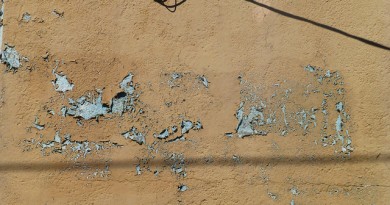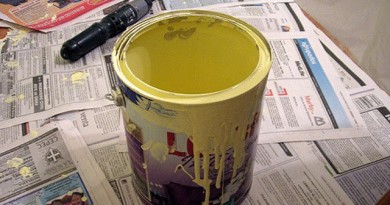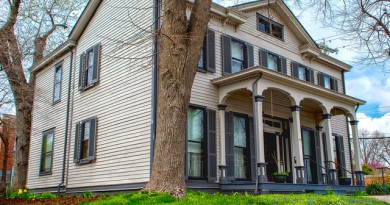How Much Does Bee Removal Cost?
Humans have a love/hate relationship with bees that goes back to the beginning of civilization. Early humans recognized their value to agriculture as a pollinator as well as their ability to make honey. Of course, early humans also recognized that the sting of a bee was painful and could, in some instances, be fatal. For people with allergic sensitivities, it only takes one sting for a life threatening situation to develop. And now that Africanized bees have established their presence in North America, bee removal services have to be more alert to the dangers. The homeowner must be aware as well that it is not necessarily enough to leave bees alone. If bees have established a hive on your property, they should be removed. Before hiring someone to take care of your bee infestation, it is important to consider bee removal cost.
Bee Hive Removal Cost
Because of the spread of Africanized bees, it is being recommended that bee colonies in or around a home be removed by a certified Pest Control Operator. The statistics are alarming. In South Florida, over 70% of wild bee colonies are Africanized. Also, 50% of attacks by Africanized bees happen where the victim knew about the colony but didn’t do anything about it. How much does bee removal cost? Bee hive removal cost can range anywhere from $100 to $700. The price is based on several factors. Hives can be located inside trees, walls or ceilings. Removing them can sometimes entail cutting holes in the tree or building where the hive has been established. Hives can also be much higher than ground level, increasing the cost of bee removal. Experts recommend that hives be removed alive when possible, because bees can still be beneficial to the environment. However, there are cases where the hive must be destroyed, in which case they can be exterminated for the bee removal cost of $100 to $300 depending on the size and location of the hive. As with any service, get a couple of bids first. Bee removal companies should be able to give you a free and accurate bee removal cost estimate.
Wasp Removal Cost
Wasp removal cost is not as expensive as bee removal cost. Wasps are still dangerous with a painful sting, but wasp removal cost is not as much as with Africanized bees that are more dangerous and potentially deadly. These insects are still very dangerous, so care must be taken. Wasp nest removal cost starts at about $60 and can go as high as $100. If you want to avoid wasp nest removal cost, you can always spray the nest with a commercial insecticide. Just be sure to plan your escape route first should you anger the wasps. Never swat at a wasp nest. The disturbed insects release a pheromone that might attract other wasps to defend against the threat. Just like with bees, treat the nest at night when the wasps are not active. As dangerous as this job can be, the wasp removal cost for a professional service might be worth the money.
Free Bee Removal
Because bees are useful, there are people who will remove them for free, making the cost of bee removal a non issue. Some professional beekeepers will do this.
They offer free bee removal partly as a public service, and partly because they are gaining a bee colony out of it from which they can make money. Farmers will hire bee keepers to pollinate their crops, so the more bee colonies a keeper has the more money they can make.
Wasp Control Methods
The University of Minnesota suggests that the best time to control wasp nests is in June, when the queen is present but the colony is still small. Specifically, they suggest leaving alone any nest that is not actually near your home. Otherwise, they suggest spraying wasp insecticide into the nest at three day intervals until the wasps are no longer present. For ground nests, a simple solution of soap and water made with dish soap or laundry soap might work. Otherwise, use a dust insecticide rather than liquid, and cover the entrance to the nest with dirt once the wasps have been exterminated. Nests that are concealed in a wall pose more of a problem. Use a dust instead of a spray, and drill a small hole in the wall so you can get the dust into the nest. There is some danger that the wasps will try to escape the poison by flying into the home, so it is advised to call a professional when dealing with a hidden nest.
Bee Removal Tips
Removing bees can be a dangerous proposition, especially as the chance that the colony has been Africanized is ever growing. This is why people are urged to contact a pest control specialist or a bee keeper with experience in bee removal. Clemson University has estimated that honey bees contribute $10 billion to the Unites States economy. For that reason, Clemson University and The University of Florida have published guidelines on how to get rid of bees.
If you are trying to avoid the cost of bee removal and you are the do it yourself type you can remove the hive yourself. Clemson University warns people not to attempt bee removal unless they are fully protected, especially for the 1% of the population that are allergic. The University of Florida has published a guide on choosing a pest control operator to remove your bees. If you want to do it yourself without killing the insects, you can try burning wood beneath the hive and smoking the bees out. Also, mothballs have proven effective at repelling bees. In any event, once the bees are gone, you still need to contact a bee expert for removal of the hive. An abandoned hive can attract more bees and your problem will return.
There is also a trick for how to get rid of bees from trees. The key here is to use a pest control pole duster that is about ten feet long. Always spray at night, as this is when the bees are not active. When spraying into the hive, check to see if any of the dust is escaping. If it is, then the dust is not getting into the hive and you will have to adjust the pole. If there is any activity the next day, reapply.
- 682SHARES






